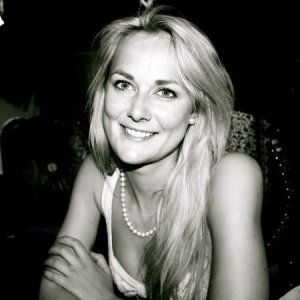 Egg freezing is an up and coming trend among hopeful future mothers—hailed as “the new 30th birthday present for British women,” in a recent Telegraph article.
Egg freezing is an up and coming trend among hopeful future mothers—hailed as “the new 30th birthday present for British women,” in a recent Telegraph article.
Egg freezing allows women with medical and social reasons to delay having a baby. It may be seen as an “insurance policy” for women who are not in a relationship or who are not ready to have a baby for any other reason. They may freeze their young healthy eggs in order to wait until they are in a loving relationship or ready to start a family. It can help take away the urgency some women feel to find a man for procreation only, allowing them to concentrate on their education or career first.
Comparable to using contraception to avoid conception, egg freezing allows us to choose the timing of conception. This is empowering women, by offering fertility options and encouraging deeper thought into starting a family. However, we must be careful not to disrupt natural choices and ensure that patients are appropriately informed.
Some may think that such manipulation of a beautifully natural life event is morally wrong. As with all areas of medicine and the exponential advancements in technology, we are constantly raising ethical questions about how we manage our bodies—and fertility is no different. The potential to revolutionise our lives is incredible, but we need to be cautious with our decisions.
A friend, also 25 years old, recently came to me with the plan to freeze her eggs after the city firm she works for had welcomed a specialist talk on the procedure. Interesting, I thought, after recent announcements from Apple, Facebook, and NASA that they are offering employees subsidised egg freezing. A thoughtful and generous gesture? Or perhaps a worrying subliminal message encouraging staff to choose their career before family?
One of the major downfalls of egg freezing is the potential for false hope. The statistics around conception rates after egg freezing are not so rosy. Records from the Human Fertilisation Embryology Authority show that, up to December 2012, around 18 000 eggs have been stored in the UK for patients’ own use. Around 580 embryos from stored eggs have been created, of which the embryos were transferred to women in around 160 cycles, and only around 20 resulted in live births. Women need to be fully aware that freezing their eggs at 30 does not guarantee a child at 40. The best chance of a successful pregnancy is to conceive naturally during their peak fertile years.
Expensive “luxury” health advancements tend to come with a hefty price tag, and egg freezing is no different, costing roughly £7000 for three cycles. This raises another ethical question around the rich/ poor divide. Will it create a future of older wealthier mothers, and poorer parents who’ve had children at a younger age? I am doubtful, yet it is something to consider as more and more women opt for egg freezing.
On average, British mothers are the oldest in the world when they have their first baby. Official figures show that the average age of women in the UK to start a family is now over 30 years, as royally demonstrated by the Duchess of Cambridge who gave birth to Prince George aged 31. The Office for National Statistics suggests that this is owing to women placing education and careers first. Back in 1975, the average age was 26 years. This age increase also creates difficulties in managing older pregnant women, who are more likely to have medical problems and complications during pregnancy and birth.
I accept that I will be older than my own mother before I am ready to start a family, a shift underpinned by social and cultural changes. I am more than happy to establish my career, travel to my heart’s content, and, quite frankly, be selfish for a while longer before welcoming the pitter patter of tiny feet. At the same time, I am conscious of my body clock, and am keen to see my family grow and flourish while I am fit and well. I am not planning on freezing my eggs right now, but would have no qualms in doing so in the future if I felt starting my family needed to be delayed for whatever reason.
As David Attenborough cunningly said, “procreation is the closest we can get to immortality.”
Every moment a new life is born is precious, whether the woman has carefully selected how this happens by freezing her eggs or not. I believe that this choice is a gift we should embrace, but do so carefully and wisely.
Sarah Welsh is an SHO clinical teaching fellow, Hillingdon Hospital.
Competing interests: None declared.
